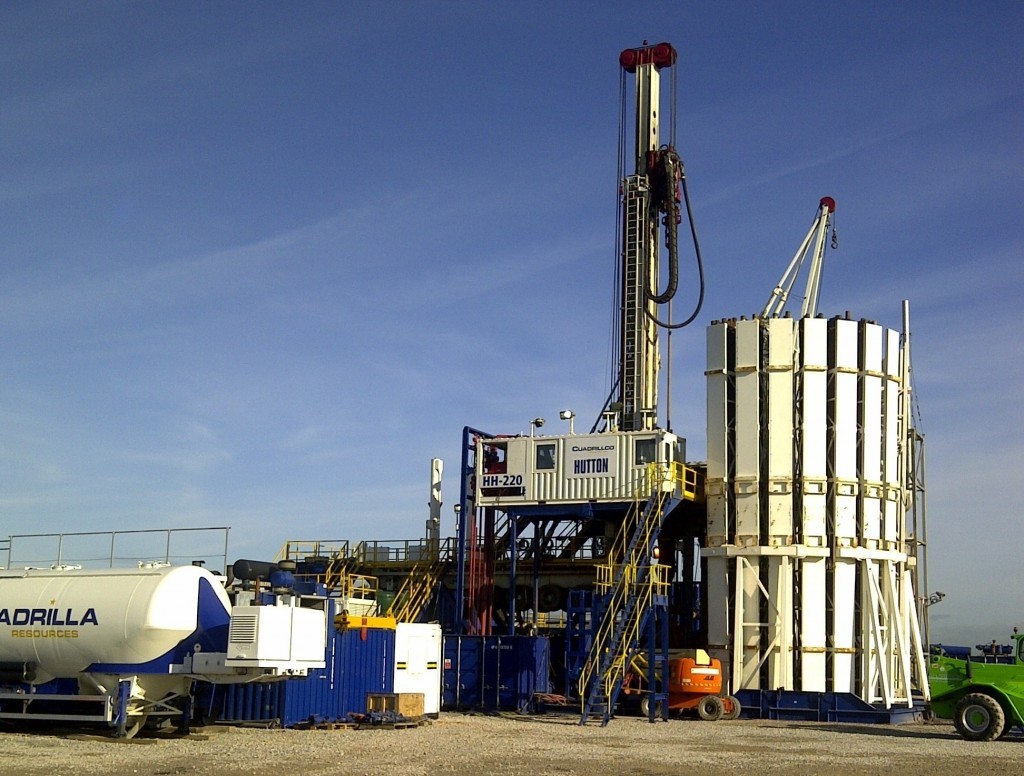
Fracking at a site in Lancashire has been given the final go-ahead by the Government.
Shale company Cuadrilla has been granted permission to undertake the controversial process at the site at Preston New Road, subject to certain conditions being met.
Energy and Clean Growth Minister Claire Perry said the company had met all the necessary environmental and health and safety measures in order to give it the go-ahead.
But certain conditions had to be met, including supplying the Business and Energy Department with the latest accounts for co-investor Spirit Energy, or a deposit in support of any potential liabilities for decommissioning costs.
Ms Perry said shale gas had the potential to be a new domestic energy source “further enhancing our energy security and helping us with our continued transition to a lower-carbon economy”.
She said: “It also has the capacity to deliver substantial economic benefits, both nationally and locally, as well as through the creation of well-paid, high-quality jobs.
“We already have an excellent, long-standing reputation for safe oil and gas exploration.
“Our world-class regulations will ensure that shale exploration will maintain robust environmental standards and meet the expectations of local communities.”
Francis Egan, chief executive of Cuadrilla, said: “We are very pleased to be the first operator in the UK to have been awarded final consent to hydraulically fracture the UK’s first onshore horizontal shale exploration well.
“This is a testament to, and underpinned by, our strong track record of running a world-class shale gas exploration site at Preston New Road, in compliance with robust health, safety, environmental and planning regulations.”
He said the move was a “win” for Lancashire which had already benefited from more than £10 million of investment as a result of exploration work at the site, and the company would be submitting a consent application for the second well at Preston New Road.
But the site has been the subject of ongoing protests from local people and campaigners who object to hydraulic fracturing – in which liquid is pumped at high pressure deep underground to fracture rock and release gas.
Opponents fear it can cause earthquakes, pollute water, lead to damaging development in the countryside and hit house prices, and is not compatible with targets to cut fossil fuel use to tackle climate change.
Early this month, MPs warned the Government against its plans to deal with planning applications for fracking at a national level, under the nationally significant infrastructure projects regime, saying it would be damaging to local democracy.
Liz Hutchins, Friends of the Earth director of campaigns, said it had taken seven years for the industry to get to this point, during which time renewables had gone from supplying a tenth of the UK’s electricity to a third.
“There is no need to force fracking on this community in Lancashire when the alternatives are so clear,” she said.
“The Government backed the wrong horse. Renewables have cleared the finishing line and have taken the cup while fracking is limping along on the first stretch.”
She added: “They have also had to really push the boundaries of planning law by trying to change regulations to go all-out for fracking, and they’ve put everything into resuscitating this nearly dead-on-its-feet industry.”
Shadow energy minister Alan Whitehead said the decision was “riding roughshod over the opposition of local people and a previous ruling by the local council”.
“Overwhelmingly people don’t want to take the unnecessary risk with fracking, to our natural environment and the purity of our water.
“Labour will ban fracking, instead committing to building our renewables sector and sourcing 60% of our energy from clean, green sources by 2030,” he said.
Recommended for you
